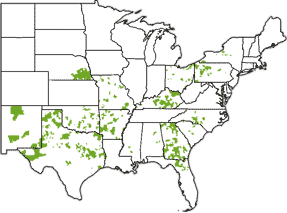
The elusive Dell 10v Netbook promised to new Comcast customers back in August is MIA for hundreds who took advantage of the promotion
Five months after Comcast ran a promotion for new customers including a free Dell 10v netbook, many customers across the country are still waiting to receive the computer.
Back in August, Comcast matched a Verizon FiOS promotion promising a netbook to new customers signing a two-year service contract for a $99 monthly “triple play” package of telephone, broadband, and cable programming.
Visitors to Comcast’s website were offered:
HD Starter Triple Play
NEW SUBSCRIBERS: Get a free Dell 10v Netbook with the HD Starter Triple Play for only $99 a month for 12 months and a 2-year minimum term agreement. Plus, you’ll continue the savings the following year with a price of just $10 more per month.
- Free HD – no HD access fees or equipment fees.
- Over 80 digital cable channels.
- Thousands of On Demand movies and shows.
- Internet downloads up to 15 Mbps, uploads up to 3 Mbps with PowerBoost®.
- Unlimited local and long-distance nationwide calling – rated #1 in call clarity.
- Voice Mail and 12 popular calling features including Caller ID, Call Waiting and more.
 The campaign apparently shared something else in common with Verizon’s promotions — customers left high and dry wondering when the promised bonus will arrive.
The campaign apparently shared something else in common with Verizon’s promotions — customers left high and dry wondering when the promised bonus will arrive.
Customer attempts to contact Comcast have met with a wall of excuses and broken promises, and often still no netbook. Other customers were told they failed to “qualify” for the promotion for not precisely following the terms and conditions that were never explained to them.
Comcast representatives have told customers they lost out because:
- They failed to return a copy of the signed contract committing to two years’ of service, despite insistence from customers who claimed they had;
- Comcast had two promotions running at the same time that were nearly identical, though one offer did not include a netbook. Customers were told they were signed up for the promotion that didn’t include the netbook.
- Customers had to make three or four consistent payments for service, before the due date, or they would forfeit participation in the netbook promotion.
- The customer waited too long to complain about the missing netbook.
- The customer was now a TV customer, and therefore didn’t qualify for the promotion.
- Tri-Star/Checkmyrebate.com, the third party fulfillment center handling the promotion didn’t receive/rejected the customer’s promotion request.
- They lost the paperwork.
Although some customers began receiving the promised promotion more than 120 days after signing up for Comcast, hundreds more are still waiting, and complaining. A few managed to obtain service credits up to $299 (the retail cost of the Dell 10v) and told to “go buy your own.” One Seattle television station intervened to help a Kenmore resident finally secure one in January, despite hopes it would have arrived before Christmas for re-gifting.
Escalating the matter to executive customer service is usually the best way to cut through Comcast’s red tape and secure the promotion customers are entitled to receive.
Darren, a Comcast customer who waited months for the cable company to make good on their offer gave some advice:
I started posting on Facebook and Twitter and immediately received a twitter from @ComcastMelissa and @ComcastBonnie. They told me to email: [email protected] and provide my account information so they can get me my netbook. I received an email from Sherri Carson, ([email protected]) at the corporate office – national customer service. On January 7th, 2010 she said “This is going to take about 2 weeks at the most. Sorry, I know you should have received some follow up, but I’m on it.”
The kicker: I emailed her yesterday to say hey, two weeks is almost up and I haven’t heard anything. Here is her response: “You should be receiving your netbook no later than 2/19 at the latest. I will get you a tracking number as soon as I get one. You can check this site in about two weeks.
Just don’t get your hopes too high for a Dell netbook. Many finally receiving their promotional gift report an Asus Eee PC arrived instead. Comcast put that in the fine print as well — it reserved the right to make substitutions.
[flv width=”480″ height=”290″]http://www.phillipdampier.com/video/KING Seattle Comcast called out in Triple Play promotion 1-7-10.mp4[/flv]
KING-TV Seattle helped this Kenmore, Washington viewer finally get her promised netbook after signing up for service in August, 2009. A Comcast executive personally pleaded for her to stay with Comcast, despite the promotion problem, in this report. (2 minutes)


 Subscribe
Subscribe




